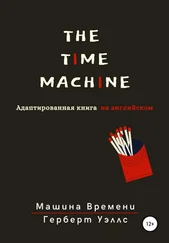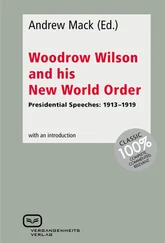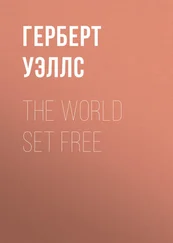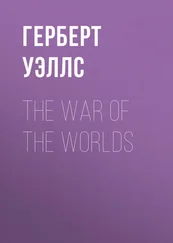Герберт Уэллс - The New World Order
Здесь есть возможность читать онлайн «Герберт Уэллс - The New World Order» весь текст электронной книги совершенно бесплатно (целиком полную версию без сокращений). В некоторых случаях можно слушать аудио, скачать через торрент в формате fb2 и присутствует краткое содержание. Год выпуска: 1940, Жанр: Политика, Публицистика, на английском языке. Описание произведения, (предисловие) а так же отзывы посетителей доступны на портале библиотеки ЛибКат.
- Название:The New World Order
- Автор:
- Жанр:
- Год:1940
- ISBN:нет данных
- Рейтинг книги:4 / 5. Голосов: 1
-
Избранное:Добавить в избранное
- Отзывы:
-
Ваша оценка:
- 80
- 1
- 2
- 3
- 4
- 5
The New World Order: краткое содержание, описание и аннотация
Предлагаем к чтению аннотацию, описание, краткое содержание или предисловие (зависит от того, что написал сам автор книги «The New World Order»). Если вы не нашли необходимую информацию о книге — напишите в комментариях, мы постараемся отыскать её.
The New World Order — читать онлайн бесплатно полную книгу (весь текст) целиком
Ниже представлен текст книги, разбитый по страницам. Система сохранения места последней прочитанной страницы, позволяет с удобством читать онлайн бесплатно книгу «The New World Order», без необходимости каждый раз заново искать на чём Вы остановились. Поставьте закладку, и сможете в любой момент перейти на страницу, на которой закончили чтение.
Интервал:
Закладка:
The New World Order
by H. G. Wells
1. THE END OF AN AGE
In this small book I want to set down as compactly, clearly and usefully as possible the gist of what I have learnt about war and peace in the course of my life. I am not going to write peace propaganda here. I am going to strip down certain general ideas and realities of primary importance to their framework, and so prepare a nucleus of useful knowledge for those who have to go on with this business of making a world peace. I am not going to persuade people to say "Yes, yes" for a world peace; already we have had far too much abolition of war by making declarations and signing resolutions; everybody wants peace or pretends to want peace, and there is no need to add even a sentence more to the vast volume of such ineffective stuff. I am simply attempting to state the things we MUST do and the price we MUST pay for world peace if we really intend to achieve it.
Until the Great War, the First World War, I did not bother very much about war and peace. Since then I have almost specialised upon this problem. It is not very easy to recall former states of mind out of which, day by day and year by year, one has grown, but I think that in the decades before 1914 not only I but most of my generation-in the British Empire, America, France and indeed throughout most of the civilised world-thought that war was dying out.
So it seemed to us. It was an agreeable and therefore a readily acceptable idea. We imagined the Franco-German War of 1870-71 and the Russo-Turkish War of 1877-78 were the final conflicts between Great Powers, that now there was a Balance of Power sufficiently stable to make further major warfare impracticable. A Triple Alliance faced a Dual Alliance and neither had much reason for attacking the other. We believed war was shrinking to mere expeditionary affairs on the outskirts of our civilisation, a sort of frontier police business. Habits of tolerant intercourse, it seemed, were being strengthened every year that the peace of the Powers remained unbroken.
There was indeed a mild armament race going on; mild by our present standards of equipment; the armament industry was a growing and enterprising one; but we did not see the full implication of that; we preferred to believe that the increasing general good sense would be strong enough to prevent these multiplying guns from actually going off and hitting anything. And we smiled indulgently at uniforms and parades and army manoeuvres. They were the time-honoured toys and regalia of kings and emperors. They were part of the display side of life and would never get to actual destruction and killing. I do not think that exaggerates the easy complacency of, let us say, 1895, forty-five years ago. It was a complacency that lasted with most of us up to 1914. In 1914 hardly anyone in Europe or America below the age of fifty had seen anything of war in his own country.
The world before 1900 seemed to be drifting steadily towards a tacit but practical unification. One could travel without a passport over the larger part of Europe; the Postal Union delivered one's letters uncensored and safely from Chile to China; money, based essentially on gold, fluctuated only very slightly; and the sprawling British Empire still maintained a tradition of free trade, equal treatment and open-handedness to all comers round and about the planet. In the United States you could go for days and never see a military uniform. Compared with to-day that was, upon the surface at any rate, an age of easy-going safety and good humour. Particularly for the North Americans and the Europeans.
But apart from that steady, ominous growth of the armament industry there were other and deeper forces at work that were preparing trouble. The Foreign Offices of the various sovereign states had not forgotten the competitive traditions of the eighteenth century. The admirals and generals were contemplating with something between hostility and fascination, the huger weapons the steel industry was gently pressing into their hands. Germany did not share the self-complacency of the English-speaking world; she wanted a place in the sun; there was increasing friction about the partition of the raw material regions of Africa; the British suffered from chronic Russophobia with regard to their vast appropriations in the East, and set themselves to nurse Japan into a modernised imperialist power; and also they "remembered Majuba"; the United States were irritated by the disorder of Cuba and felt that the weak, extended Spanish possessions would be all the better for a change of management. So the game of Power Politics went on, but it went on upon the margins of the prevailing peace. There were several wars and changes of boundaries, but they involved no fundamental disturbance of the general civilised life; they did not seem to threaten its broadening tolerations and understandings in any fundamental fashion. Economic stresses and social trouble stirred and muttered beneath the orderly surfaces of political life, but threatened no convulsion. The idea of altogether eliminating war, of clearing what was left of it away, was in the air, but it was free from any sense of urgency. The Hague Tribunal was established and there was a steady dissemination of the conceptions of arbitration and international law. It really seemed to many that the peoples of the earth were settling down in their various territories to a litigious rather than a belligerent order. If there was much social injustice it was being mitigated more and more by a quickening sense of social decency. Acquisitiveness conducted itself with decorum and public-spiritedness was in fashion. Some of it was quite honest public-spiritedness.
In those days, and they are hardly more than half a lifetime behind us, no one thought of any sort of world administration. That patchwork of great Powers and small Powers seemed the most reasonable and practicable method of running the business of mankind. Communications were far too difficult for any sort of centralised world controls. Around the World in Eighty Days, when it was published seventy years ago, seemed an extravagant fantasy. It was a world without telephone or radio, with nothing swifter than a railway train or more destructive than the earlier types of H.E. shell. They were marvels. It was far more convenient to administer that world of the Balance of Power in separate national areas and, since there were such limited facilities for peoples to get at one another and do each other mischiefs, there seemed no harm in ardent patriotism and the complete independence of separate sovereign states.
Economic life was largely directed by irresponsible private businesses and private finance which, because of their private ownership, were able to spread out their unifying transactions in a network that paid little attention to frontiers and national, racial or religious sentimentality. "Business" was much more of a world commonwealth than the political organisations. There were many people, especially in America, who imagined that "Business" might ultimately unify the world and governments sink into subordination to its network.
Nowadays we can be wise after the event and we can see that below this fair surface of things, disruptive forces were steadily gathering strength. But these disruptive forces played a comparatively small r�le in the world spectacle of half a century ago, when the ideas of that older generation which still dominates our political life and the political education of its successors, were formed. It is from the conflict of those Balance of Power and private enterprise ideas, half a century old, with these ever-growing disruptive forces, that one of the main stresses of our time arises. These ideas worked fairly well in their period and it is still with extreme reluctance that our rulers, teachers, politicians, face the necessity for a profound mental adaptation of their views, methods and interpretations to these disruptive forces that once seemed so negligible and which are now shattering their old order completely.
Читать дальшеИнтервал:
Закладка:
Похожие книги на «The New World Order»
Представляем Вашему вниманию похожие книги на «The New World Order» списком для выбора. Мы отобрали схожую по названию и смыслу литературу в надежде предоставить читателям больше вариантов отыскать новые, интересные, ещё непрочитанные произведения.
Обсуждение, отзывы о книге «The New World Order» и просто собственные мнения читателей. Оставьте ваши комментарии, напишите, что Вы думаете о произведении, его смысле или главных героях. Укажите что конкретно понравилось, а что нет, и почему Вы так считаете.
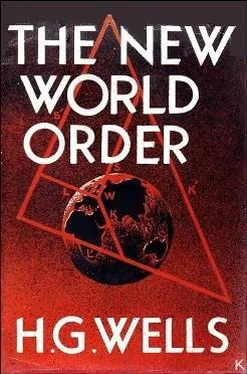
![Герберт Уэллс - The War of the Worlds [С англо-русским словарем]](/books/26611/gerbert-uells-the-war-of-the-worlds-s-anglo-thumb.webp)

